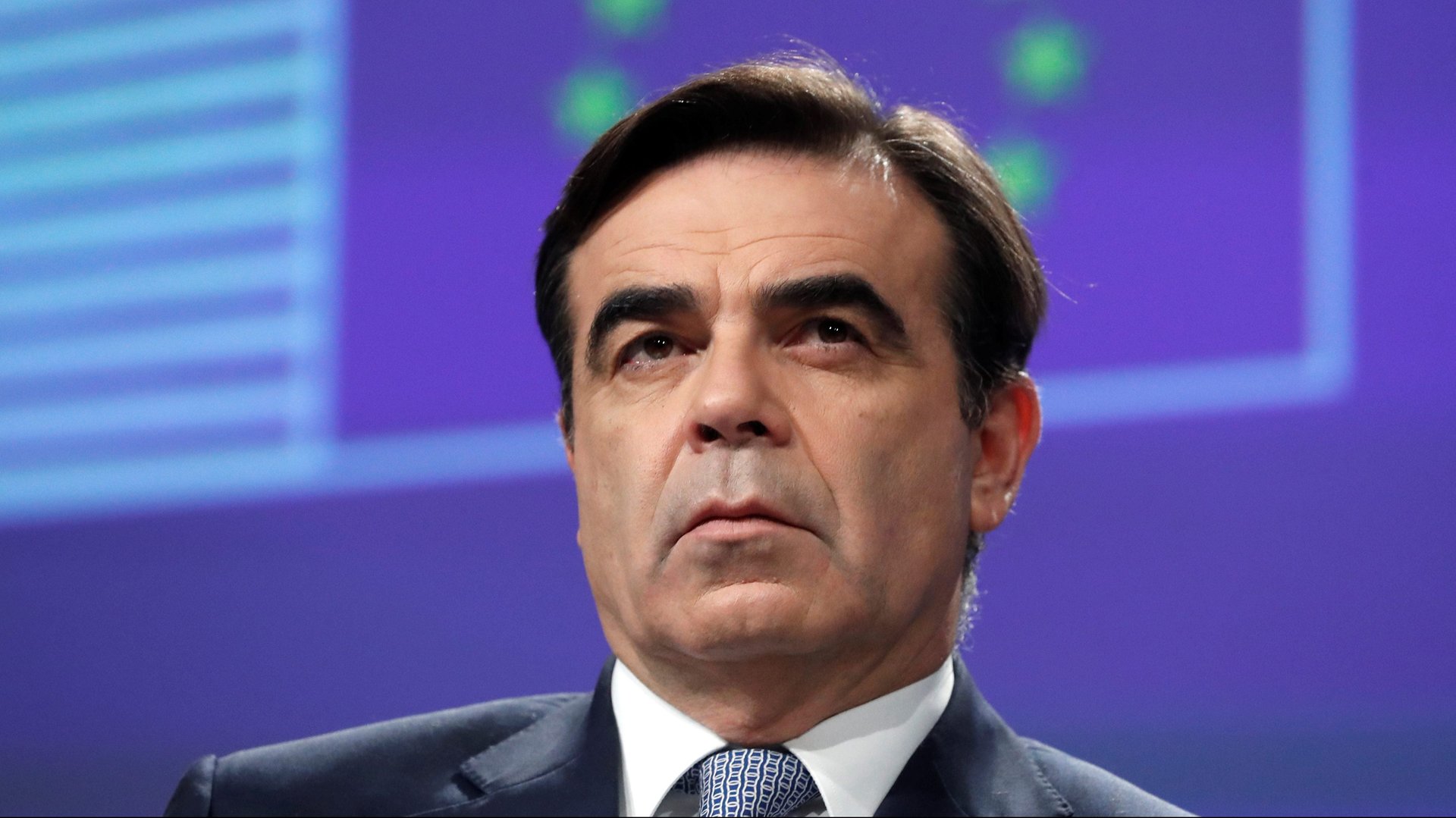Your questions about the new EU job for “protecting our European way of life,” answered
Today, members of the European Parliament got the chance to question one of the nominees for the new European Commission that will take office on Nov. 1: “vice-president for protecting our European way of life.”


Today, members of the European Parliament got the chance to question one of the nominees for the new European Commission that will take office on Nov. 1: “vice-president for protecting our European way of life.”
Margaritis Schinas’ designation has been the most controversial of the 26 nominees announced in September by Ursula von der Leyen, the incoming president of the European Commission.
Controversy broke out almost as soon as von der Leyen announced the new portfolio, which she described (video) as one of her political “priorities.” The portfolio covers a range of issues, including migration, employment, health, security, culture, and education.
This drew the ire of those who said that associating migrants with the need to protect a European way of life echoed the language of the far-right. Outgoing Commission president Jean-Claude Juncker criticized the portfolio in an interview, arguing that “accepting those coming [from] far away … is part of the European way of life.” Meanwhile, French far-right leader Marine Le Pen called it an “ideological victory,” according to Reuters.
In an op-ed published in several European newspapers, von der Leyen fought back: “[W]e have seen home-grown populists with cheap nationalistic slogans try to destabilize us from the inside. We should not allow these forces to hijack the definition of the European way of life. They want it to mean the opposite of what it is.” She wrote on Twitter that the European way of life was directly related to article 2 of the Treaty of Lisbon. The 2007 Treaty, one of the foundational documents of the European bloc as we know it today, states that the Union “is founded on the values of respect for human dignity, freedom, democracy, equality, the rule of law and respect for human rights, including the rights of persons belonging to minorities.”
So, what is the European way of life? Schinas, who will be responsible for protecting it if confirmed by lawmakers, answered that question in a passionate opening statement during today’s confirmation hearing:
“Shakespeare would have us believe that a rose by any other name would smell as sweet, but names are important because they give things meaning; they bring us meaning. And it means something to be European. At its core, being European means protecting the most vulnerable in our societies. It means healthcare and welfare systems that all can access. It means having the same opportunities. It means promoting culture and sport as core elements of our systems and equipping people with the knowledge, education, and skills they need to live and work in dignity. It means feeling safe on (sic) our homes, in our streets, and all of the places we like to meet, exchange, and experience life together. Being European means being open to the world; extending heart and home to those who are less fortunate. It means standing up for these values, for these rights, for these principles across the globe. Being European means peace, freedom, equality, democracy, and respect for human dignity. On a very personal note, being European for me has meant living a European life, raising a European family, and dedicating 30 years of my life to European public service. I am nothing if not for Europe. I am proud to be European, and all the more so for having been given the unique opportunity to serve our union.”
Schinas acknowledged the controversy caused by his title, saying “I do not by any means take lightly the debate that has been triggered by the title given to this work.” But he echoed von der Leyen’s message that the European way of life is intimately bound up with the values laid out in the Lisbon Treaty, which he said “very clearly defines my mission.”